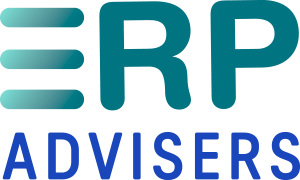Home | Choosing Your ERP Software Partners
The right enterprise resource planning (ERP) software is important to the continuity of your business, but choosing who to work with to help select, customize and implement this software is critical to its success.
What is ERP?
Enterprise Resource Planning is the integrated management of a business’ main processes, and ERP software is a way to execute and monitor this integration. ERP software facilitates the exchange of information throughout a company, helping to speed up business processes, cut costs, increase sales, improve quality, create positive customer experiences and measure successes and failures.
Purchase partners
ERP software comes in modules that perform a specific function – examples include accounts payable, accounts receivable, general ledger, payroll, purchase orders etc. ERP suites require customization to be a good fit for a specific business.
To select their software, companies may choose to work directly with a software vendor. However, due to the wide range of options and customization needs of each business, it is recommended to work with a partner who can weigh the pros and cons of many different software suites and help each business decide which solution is right for them, especially when it comes time to customize and implement. This would be either a value-added software reseller, or an ERP consultant.
Value-Added Resellers (VARs)
VARs are recruited and trained by the software vendors to sell products on their behalf. VARs invest in their own technical staff, training facilities, workspace and software purchases and they usually share a percentage of sales with the software vendor.
ERP purchasers should remember that that while VARs also perform consulting functions, their advice may be impacted by their relationships with certain suppliers.
Consultants
Consultants with financial, accounting and software expertise often provide a different perspective and approach than a VAR. Consultants are typically selected based on comprehensive experience in specific industries, intensive knowledge about particular ERP software modules, or both. Selecting an industry expert that is able to compare the situations of similar companies they have worked with before can be valuable in helping them choose which suite will work best for a specific business.
Working with an ERP consultant provides a business with invaluable experience and expertise. Reach out to ERP Advisers today to discuss how we can help find the right solution for your business at this critical time.








